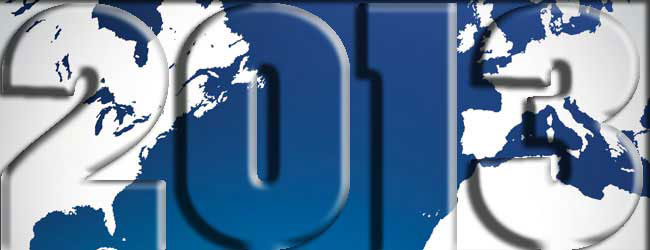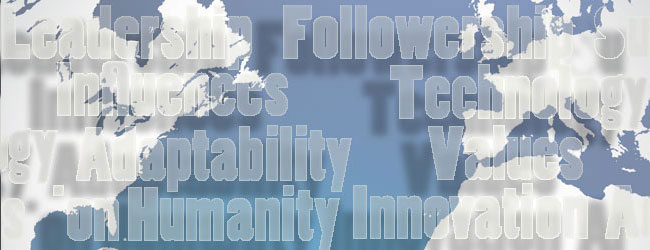Can you feel it? Can you feel the shift that is happening in the world? It's happening culturally, economically, socially, and globally. There is a greater risk to doing things the same way than there is to shaking it up and opening to what is shifting right now. Disruption is everywhere – and that is a good thing. It's making way for the new creative genius that may be hiding in your organization waiting to emerge and be given the freedom to innovate radically. There is no virtue to playing it safe.
At a holiday luncheon I sponsored with non-profit leaders, Bob Ottenhoff, former CEO of Guidestar and current CEO and President of The Center for Disaster Philanthropy in DC posed an intriguing question that he himself had been asked. "Are you a 21st Century organization or are you a 20th Century organization?" This question generated much discussion about what it takes to be a 21st Century organization.
So what do you need to consider to be a 21st Century Leader and a 21st Century Organization?
Leadership
Here is where amplification takes a stand. The 21st century leader must identify ways to amplify her impact on the organization and on the business. The 21st century leader will recognize that leadership comes from the inside out. How she behaves and models leadership is amplified into the organization. Developing a 21st century organization that is agile and is learning based will be the primary responsibility of future leaders. Knowing is not enough because what we know, or think we know, is constantly being challenged. Developing emerging leaders and attracting the right talent to the organization will amplify the impact on the business and on that industry. Develop and attract talent that can skillfully navigate the pace of change and keep learning and innovating.
Followership
Technology plays a significant role in followership these days. With the proliferation of social media outlets and influential bloggers, organizations need to strategically manage their message while maintaining respect and transparency. Relationships with key influencers of your customers are vital to the evolution of your company and the loyalty of your customers. A 21st century organization is relationship based, managing strategically and with respect and transparency to earn the trust and following of your customer.
Influences
Taking a good hard look at what influences your industry or market from a place of non-attachment is key to understanding and potentially anticipating trends and new market needs. The more attached your organization is to its products, services or ways of doing business the less able you are to take advantage of unforeseen events or possibilities.
Technology
Learn to leverage technology well. The 21st century organization is apt to be virtual or have a remote employee component especially if you are to engage a younger generation of talent that believes work is what you do not a location. Collaboration tools, efficiency in processes and new media are some of the areas organizations will need to explore in order to attract and retain talent and to work most effectively around the globe.
Sustainability
Sustainability goes beyond recycling. Sustainability means building a resilient organization, resilient leaders and asking tough questions around personal and organizational legacy. What is the imprint you wish to leave on the world? Are you a good citizen, caring for the planet and its inhabitants with practices that generate well-being for those you serve? Consumers demand ethics and environmental responsibility and they will choose with their purses.
Humanity
You may have noticed that we have been woefully inadequate at caring for one another as human beings. Greed has generated a "me first" attitude that created a massive failure of leadership. We have failed because leaders have been operating under fundamental assumptions that cannot serve our future.
In What Matters Now: How to Win in a World of Relentless Change, Ferocious Competition, and Unstoppable Innovation, author Gary Hamel addresses the need to reinvent management and to rethink the fundamental assumptions we have about capitalism, organizational life, and the meaning of work. Our current challenges exceed our leaders' capacity and bandwidth to manage those challenges. This is called an "adaptive challenge". Because of the assumptions and the limited capacity of current leadership, it is imperative to focus energy on what truly matters and to build generative systems that amplify a leader's impact on the world. Gary Hamel identifies five issues are that are paramount for thriving in the 21st century: values, innovation, adaptability, passion and ideology.
Values: With recent events in the financial industry and markets trust in large organizations is at an all-time low. No bandage solution will recover trust. What is required is values focused leadership that creates transparency and mutual respect between organizations and their stakeholders.
Innovation: Innovation is the responsibility of every employee in every organization. That requires an internal value on learning, a tolerance for failure and risk and openness to game changing thinking. Innovation will separate the 21st century organization from the 20th century organization.
Adaptability: In a world of accelerating change only those organizations that can adapt to the level of pace and complexity will thrive in the future. Agility in leadership and business processes will promote forward movement.
Passion: Talented and creative individuals are beyond working for a paycheck alone. They want to make a difference and use their talent and energy to make meaning in the world. This is particularly true of a new generation of workers that values, perhaps even over-values, their talents and skills and are seeking ways of applying their energy to causes that have greater impact than profit. Passion is tied into Humanity – doing well by doing good. The 21st century leader must answer the question: Why work here instead of there?
Ideology: Freedom and accountability go hand in hand. Some organizations are finding that more autonomy combined with more responsibility produces higher levels of productivity. The leader's role is to create systems that remove any obstacles to brilliance and innovation. Less hierarchal structures with mutual accountability will help organizations thrive in the 21st century.
How will you amplify your impact in 2013? Start by having an open discussion with your leadership team on ways your organization can thrive and become a 21st century organization. Generate passion for the future.

By Alicia M. Rodriguez, M.A., P.C.C.
Alicia is the founder of Sophia Associates, Inc., an international executive and leadership coaching practice dedicated to enhancing leadership competencies, strengthening executive performance levels, creating opportunities for personal learning and developing high performing teams.More info
Visit her site: sophia-associates.com
Pictures: Filmagen
More Business articles /
Do you wish to write for Colors?






